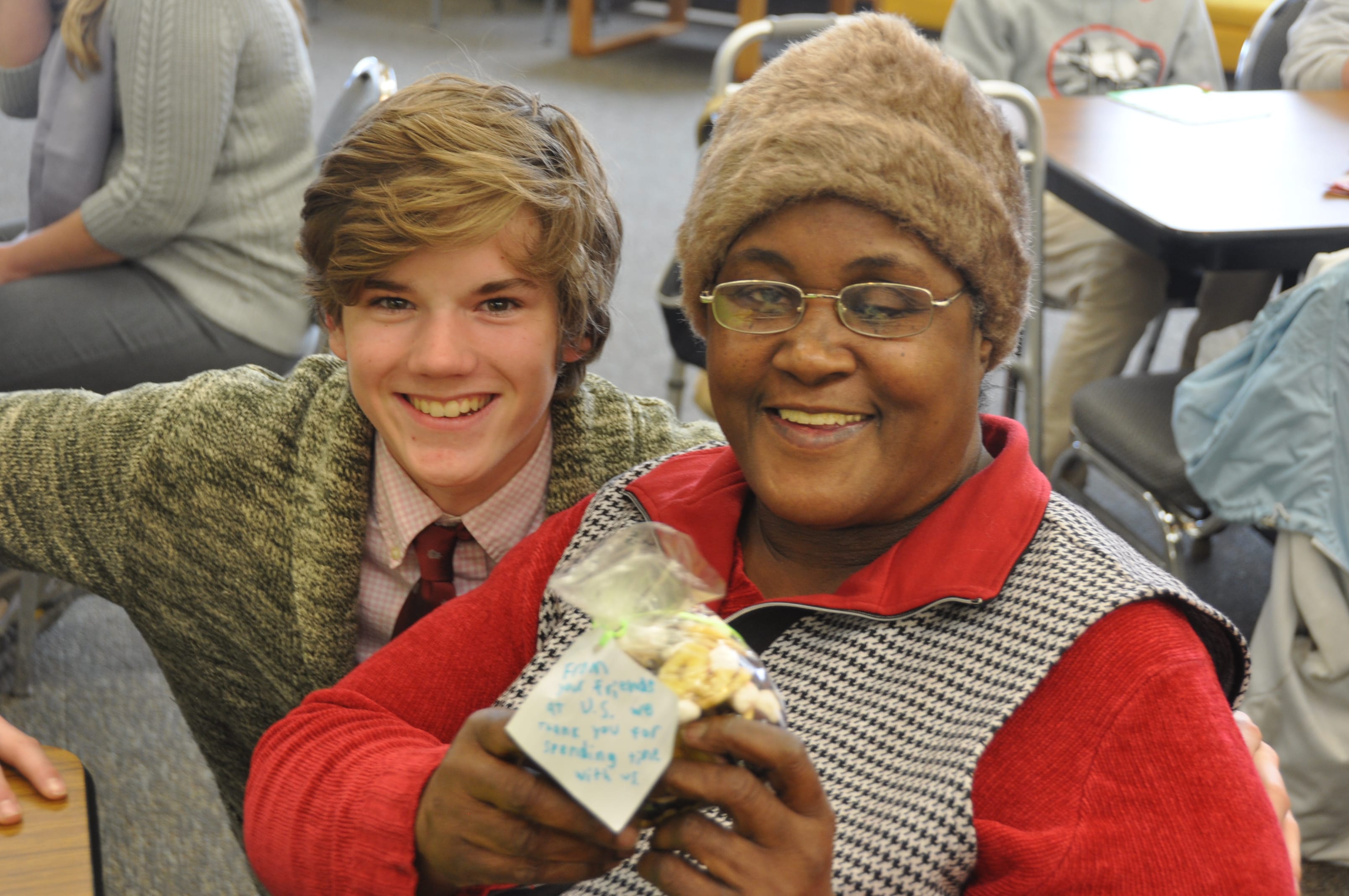Asset Publisher
The Impact of Intergenerational Programming
By Ashlee Williman | 06/11/2019

A Rose Center for Aging Well participant enjoying an intergenerational activity together with a young adult
Intergenerational programs provide opportunities to bridge generations through interactive activities and shared experiences. The impact and benefits of intergenerational programming can be measured on many levels. Whether you’re an older adult interested in participating in these activities or an organizer interested in planning them, here are just a few real world examples from the Benjamin Rose Institute on Aging’s Rose Centers for Aging Well of how intergenerational activities have benefited various generations of participants:
1. Encouraging one another
During a recent intergenerational visit at one of the Rose Centers, a group of first and second grade students brought their favorite books to read to the center participants. Each student paired up with an older adult, and immediately began reading. The teacher commented that several students in the class typically do not enjoy reading for a long period of time, but through the encouragement and support from the older adults, they continued to read for over 30 minutes together. This is just one example of the ways in which intergenerational programming can help provide encouragement to both older and younger generations.
2. Building relationships
Through regular intergenerational programming, friendships are often formed between older adults and younger students. On one occasion, a Rose Center participant, Rosie, became very close with a third grade student, Jackson. Week after week, the bond grew stronger. You could always find them sitting next to one another during a class activity, enjoying lunch together, or exchanging handmade cards with positive and encouraging words for one another. During this time, Rosie was grieving the recent loss of her husband. Rose Center staff stopped by Rosie’s house to pay their respects, and as they entered, they saw photos of her together with Jackson proudly displayed front and center on her mantel. This newfound friendship with Jackson brought joy and comfort to Rosie during those difficult times.
3. Sharing experiences
Intergenerational programming often leads to regular discussions and activities that allow generations to share their personal experiences with one another. A recent poetry exercise at one of the Rose Centers challenged the students and older adults to describe their childhood. This exercise provided a platform for them to discuss the challenges, lessons, heartbreaks, love, sorrow, obstacles and joy they had experienced in the past. While there was an obvious age gap between the two groups, there were many similarities and common themes in their stories. Some connected on hardships they had faced, while others shared cheerful memories. These programs often provide opportunities for both older and younger generations to connect on many levels, and grow a deeper understanding of one another.
Related Assets
Suggested Reads
4 Creative Ways to Engage a Loved One in Reminiscence
Everyone has a story to tell, and the older adults in our lives can be a rich source of memories, fascinating experiences, history and lessons learned over the course of a one-of-a-kind lifetime. Research shows that engaging in reminiscence and storytelling wi...
Combating Ageism: Understanding and Overcoming Negative Age Stereotypes
Ageism is discrimination against individuals or groups because of their age. It can be easy to make judgements based on someone’s perceived age but, like other forms of discrimination, negative stereotypes resulting from age prejudice can have very real conseq...
Four Benefits of Intergenerational Programming
With the widespread independent lifestyle of many American families, older loved ones are becoming increasingly separated from their families and other support systems. The COVID-19 pandemic has only increased these challenges. An estimated 27 percent of older...
Tips for Connecting with a Senior Center
Senior Centers are a vital community resource for older adults, providing a wide variety of programs, services and supports, and enabling older adults to remain active and engaged, while combating social isolation and loneliness. The National Council on Aging ...
